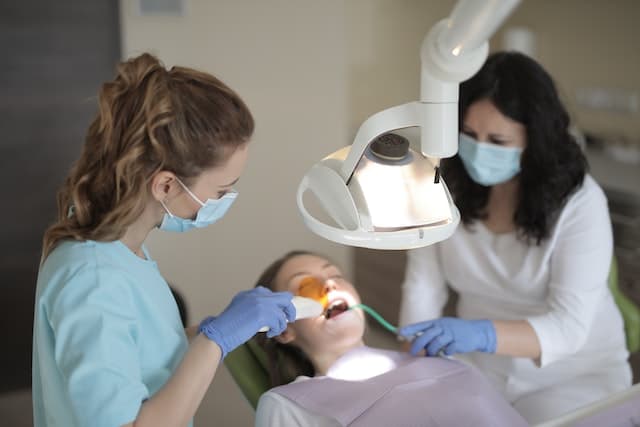
Preventing dental emergencies is important for maintaining good oral health and avoiding accidents that can result in pain, discomfort and costly dental procedures.
1. Practice good oral hygiene
Taking good care of your mouth is essential to avoiding dental emergencies. That means brushing twice a day with fluoride toothpaste, flossing daily and using mouthwash to eliminate bacteria that can cause tooth decay and gum disease. Regular dental check-ups and cleanings with a professional dentist can also help catch any issues early and prevent them from becoming emergencies.
2. Wear a mouthguard
If you participate in sports or other physical activities, wearing a mouthguard can help prevent dental emergencies. Mouthguards help protect your teeth and gums from impact, reducing the risk of broken or knocked-out teeth. Custom-fit mouthguards from a professional dentist offer the best protection and are more comfortable to wear than store-bought options.

3. Avoid hard or sticky foods
Eating hard or sticky foods can increase your risk of dental emergencies. These foods can chip or break teeth or pull out fillings or crowns. Try to avoid chewing on ice, hard candy, popcorn kernels and other hard foods that can damage your teeth. If you have dental work such as crowns or fillings, avoid sticky foods like caramel or taffy that can pull them out.
4. Don't use your teeth as tools
Using your teeth as tools can also lead to dental emergencies. Don't use your teeth to open packages, cut tape or bite your nails. These actions can chip or crack your teeth or cause them to become loose. Instead, use scissors or a knife to open packages and nail clippers to trim your nails.
5. Be mindful of your oral health during pregnancy
Pregnancy can increase your risk of dental emergencies, as hormonal changes can cause gum disease and tooth decay. It's important to continue practicing good oral hygiene during pregnancy and to visit your dentist for regular check-ups and cleanings. If you experience any dental pain or discomfort during pregnancy, don't hesitate to make an appointment with your dentist.
6. Quit smoking
Smoking can have a negative impact on your oral health, increasing your risk of gum disease, tooth decay and oral cancer. Quitting smoking can help reduce your risk of dental emergencies and improve your overall health. Talk to your doctor or Rouse Hill dentist about resources to help you quit smoking.
In general, preventing dental emergencies is all about taking care of your teeth and gums and being mindful of activities that can increase your risk of accidents. Taking good care of your teeth can help you avoid dental emergencies. This includes practicing good oral hygiene, wearing a mouthguard, steering clear of hard or sticky foods, not using your teeth as tools, being mindful of your oral health during pregnancy, and quitting smoking. Doing these things can help you reduce your risk of dental emergencies and maintain good oral health. Regular check-ups and cleanings are also important for catching any issues early and preventing them from becoming emergencies.








